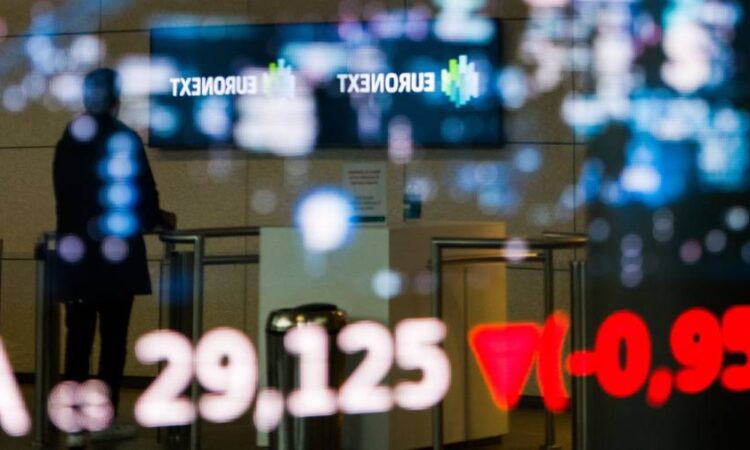
Brussels is proposing to dump the companies running its live share trading database if they fail to meet revenue targets for two years, a move that has raised concerns among some industry participants about the effectiveness of the ambitious project.
The European Commission has suggested setting minimum turnover targets for the companies running a database of live stock information, known as a consolidated tape, according to documents seen by the Financial Times. If the data provider fails to meet the target for two years, officials could withdraw its tender, according to a proposal circulated in Brussels.
The plans form the basis for a meeting between officials and industry on Thursday that will try to hammer out the fine details for running the tapes.
Brussels has pushed for the creation of the tapes, which would be similar to ones in the US, as a way to deepen and unify the EU’s fragmented financial markets.
The EU wants to bundle together basic trading information, such as price and trade size, from Europe’s patchwork network of exchanges and alternative marketplaces. Supporters say it will make European stock markets more transparent and attractive for international and retail investors.
Rainer Riess, director-general of the Federation of European Securities Exchanges, which represents 35 trading venues, said potentially ejecting the data provider after two years “defeats a little bit the purpose of the tape”.
“We want the tape in order to have a functional capital markets union . . . we can’t switch the provider every two years,” he added.
The proposal estimates that revenues would be generated by 10,500 fund managers paying for the additional information the tape offered. Pricing would be tiered, with the majority taking out the most basic subscription. The biggest groups are expected to take the most expensive option. “Revenue projections are highly dependent on user interest,” the paper said.
Anish Puaar, head of European equity market structure at market maker Optiver, said a tape alone would not be useful for the high volumes of trading it did every day.
“Many prop trading firms like us will still need to buy the faster products sold by the exchanges as the consolidated tape won’t be suitable for trade execution,” he added.
Brussels has already mandated that the tape will be operated by a private company, picked after a tender process. Euronext, Deutsche Börse and Nasdaq are among 14 exchanges that are bidding to collaborate on an equities tape.
European markets have suffered a dearth of listings and liquidity in recent years, compared with the US.
Turnover in equities, an indicator of market liquidity, rose 40 per cent in the six years to 2022 in the US but remained flat over the same period in Europe, according to data compiled by AFME, a banking lobby group.
The proposed consolidated tape has deeply split market participants in Europe. Asset managers have largely been in favour because it means live stock and ETF prices from exchanges across Europe will be available in one place.
But European stock exchanges have fiercely opposed its introduction, saying that handing over data deprives trading venues of revenues and threatens the viability of some of the region’s smaller exchanges.
“This [proposal] is all about perceived loss of revenue for the exchanges,” said Susan Yavari, senior regulatory policy adviser at the European Fund and Asset Management Association, which is lobbying for a consolidated tape.
She said that by setting a revenue target the commission was “making the ability to generate the highest amount of revenue one of the key selection criteria”, rather than focusing on the “intrinsic value of a consolidated tape”.
The commission declined to comment.






